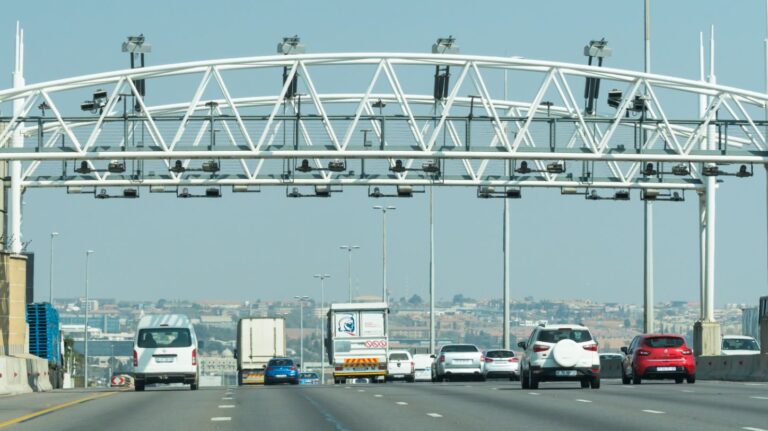The South African government has officially switched off all e-toll gantries in Gauteng province, with road-users no longer being charged for using the freeways in the country’s economic capital.
South Africa transport minister Sindisiwe Chikunga and Gauteng premier Panyaza Lesufi, as well as the leadership of the South African National Roads Agency Limited (SANRAL), hosted a media briefing at SANRAL’s Central Operations Centre in Centurion to provide the public with details of the scrapping of e-tolls.
Chikunga said the notice she had published in the Government Gazette at the end of March to withdraw the toll declaration for the Gauteng Freeway Improvement Project (GFIP) laid the ground for gantries to be switched off.
“The roads that form part of the GFIP will remain national roads and will continue to assist in facilitating economic growth in Gauteng, in turn stimulating the South African economy,” said Chikunga.
Chikunga said the announcement made by finance minister Enoch Godongwana in his 2022 Medium-Term Budget Policy Statement that e-tolls would be scrapped had set in motion a lengthy process that would eventually lead to the government’s switch-off of the gantries.
“Between myself, the minister of finance, and the premier of Gauteng, we finally reached an agreement toward the end of March on how to conclusively deal with the debt resulting from e-tolls and, as a result, we were able to sign a Memorandum of Agreement to formalise alternative funding solutions for the GFIP debt repayment and deal with the backlog of maintenance and rehabilitation costs.”
Chikunga said government was still in discussion regarding the historical debt owed by motorists.
FREE: Subscribe to the monthly Road User Charging Conference Newsletter!
Lesufi said the provincial government and residents of Gauteng were “extremely happy” with the agreement to end e-tolls and had committed R4.1bn (£173.2m) toward the maintenance backlog of GFIP roads, adding that the provincial government had a deep interest in phases two and three of GFIP.
“We are more than excited with the agreement that has been reached because it means that Gauteng will benefit from the entire GFIP project over the longer term,” said Lesufi.
“We have a keen interest in the gantries and the cameras that go with them. Those cameras are crucial in the fight against crime. We want them connected to our Provincial Integrated Command Centre.”
SANRAL CEO Reginald Demana said the national roads agency was pleased that the Memorandum of Agreement to end e-tolls had ‘unlocked borrowing limits in the bond market’.
“The dispute over e-tolls prevented us from accessing private funding because we didn’t have the requisite borrowing limits.
“Treasury has now approved the borrowing limits and investment in our freeways will unlock further investment, as can be seen with the Waterfall development in Midrand and many other road infrastructure projects, which will spur economic development in and around Gauteng and indeed across the country.”
You can learn more about the key trends and challenges affecting senior decision-makers who have responsibility for tolling, intelligent transportation systems and road pricing across the world at Akabo Media’s global series of Road User Charging Conferences in Abu Dhabi (June 2024) Singapore (October 2024), Brussels (March 2025) and Miami (May 2025). Click here for more information!





